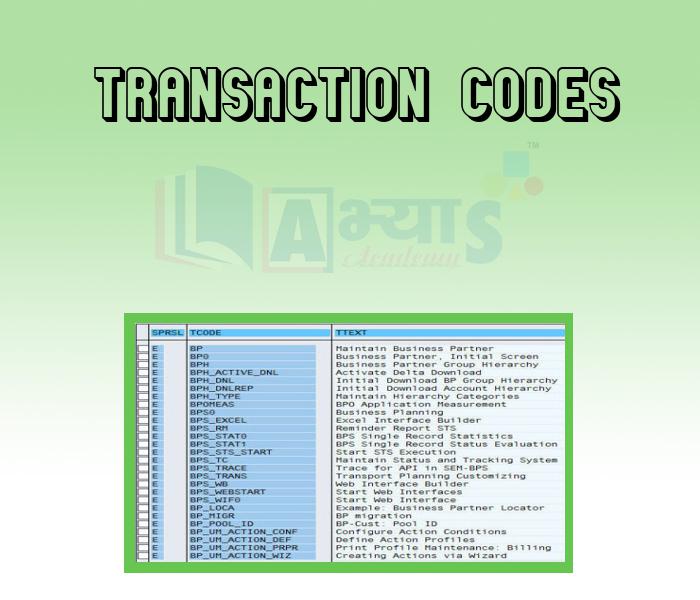Transaction Codes








Transaction Codes
Transaction Codes:
1. IFSC Codes: IFSC stands for Indian Financial System Code. The payment system applications such as Real Time Gross Settlement (RTGS), National Electronic Funds Transfer (NEFT) and Centralised Funds Management System (CFMS) developed by the Reserve Bank of India use these codes. The code consists of 11 characters
IFSC is being identified by the RBI as the code to be used for various payment system projects within the country, and it would, in due course, cover all networked branches.
2. SWIFT Codes: It is a standard format of Business Identifier Codes approved by the International Organisation for Standardisation (ISO). It is a unique identification code for both financial and non-financial institutions. These codes are used when transferring money between banks, particularly for international wire transfers and also for the exchange of other messages between banks. The codes can sometimes be found on account statements. The SWIFT code is 8 or 11 characters, made up of
(a). if the second character is "o", then it is typically a test BIC as opposed to a BIC used on the live network(b) if the second character is "1", then it denotes a passive participant in the SWIFT network(c) if the second character is "2", then it typically indicates a reverse billing BIC, where the recipient pays for the message as opposed to the more usual mode whereby the sender pays for the message
Where an 8-digit code is given, it may be assumed that it refers to the primary office.
SWIFT stands for Society for Worldwide Inter-bank Financial Telecommunication. (SWIFT) handles the registration of these codes. For this reason, Business Identifier Codes (BICs) are often called SWIFT addresses or codes.
Students / Parents Reviews [10]
It has a great methodology. Students here can get analysis to their test quickly.We can learn easily through PPTs and the testing methods are good. We know that where we have to practice

Barkha Arora
10thAbhyas is a complete education Institute. Here extreme care is taken by teacher with the help of regular exam. Extra classes also conducted by the institute, if the student is weak.

Om Umang
10thOne of the best institutes to develope a child interest in studies.Provides SST and English knowledge also unlike other institutes. Teachers are co operative and friendly online tests andPPT develope practical knowledge also.

Aman Kumar Shrivastava
10thA marvelous experience with Abhyas. I am glad to share that my ward has achieved more than enough at the Ambala ABHYAS centre. Years have passed on and more and more he has gained. May the centre flourish and develop day by day by the grace of God.

Archit Segal
7thIt was good as the experience because as we had come here we had been improved in a such envirnment created here.Extra is taught which is beneficial for future.

Eshan Arora
8thIt was a good experience with Abhyas Academy. I even faced problems in starting but slowly and steadily overcomed. Especially reasoning classes helped me a lot.

Cheshta
10thBeing a parent, I saw my daughter improvement in her studies by seeing a good result in all day to day compititive exam TMO, NSO, IEO etc and as well as studies. I have got a fruitful result from my daughter.

Prisha Gupta
8thMy experience with Abhyas is very good. I have learnt many things here like vedic maths and reasoning also. Teachers here first take our doubts and then there are assignments to verify our weak points.

Shivam Rana
7thMy experience with Abhyas academy is very good. I did not think that my every subject coming here will be so strong. The main thing is that the online tests had made me learn here more things.

Hiya Gupta
8thMy experience was very good with Abhyas academy. I am studying here from 6th class and I am satisfied by its results in my life. I improved a lot here ahead of school syllabus.
